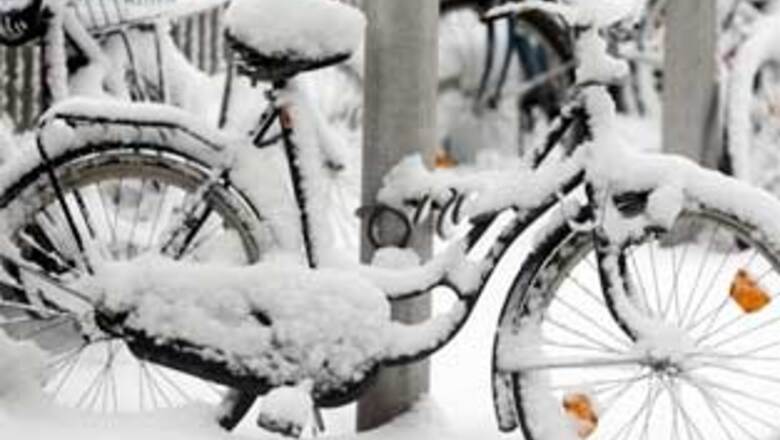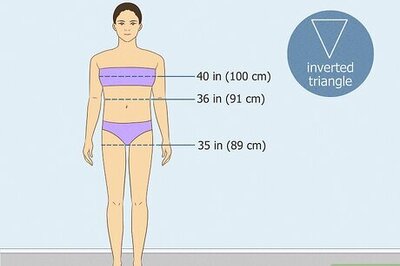
views
Warsaw (Poland): Snow, ice and cold caused train cancelations in Poland, grounded scores of planes at Madrid's airport and disrupted natural gas production in Norway Monday, but much of Europe began to return to normal after days of harsh winter weather.
In Britain, students returned to hundreds of schools across the country to take exams as temperatures crept above freezing after a cold snap that caused at least 29 deaths. Still, roads were icy and train services had not returned to full capacity.
One of the latest to die was a man who fell through ice on the River Tees in Stockton, in northern England, while trying to rescue his two dogs after they strayed onto the ice.
The country is also counting the economic cost of its longest cold snap in 30 years. With temperatures forecast to remain just above freezing in most of the country for at least another week, the Federation of Small Businesses estimated Monday that the final bill for the stretch of bad weather could top 13 billion pounds ($21 billion).
In Germany, schools along the Baltic Coast were closed and several parts of A20 highway in the country's northeast, where more than 160 people were stuck for hours in the snow on the weekend, also remained closed.
The situation on the Baltic island of Fehmarn, where villages had been cut off from the outside world on the weekend, was less dramatic on Monday.
"With the exception of five villages, we have cleared all the roads," city official Burghard Nass told the German news agency DAPD.
At Frankfurt airport, where more than 300 flights were canceled in the last two days, only nine flights had to be canceled Monday. All three runways were being used despite light snowfall, said airport spokesman Juergen Harrer. "It looks pretty good."
The prolonged cold spell raised some concerns for Germany's economy, Europe's biggest, which has returned to modest growth after a deep recession.
"The cold weather conditions could seriously spoil the beginning of 2010 for us in growth terms," Volker Treier, the chief economist at the German Chambers of Industry and Commerce, said in comments posted on the group's Web site.
The cold and snow have put construction work on ice — affecting not only construction companies but also suppliers, Treier said.
Over the weekend, winter weather crippled natural gas production in Norway, where the mercury has dropped as low as minus 42 degrees Celsius (minus 44 Fahrenheit) in recent days.
Production at the Ormen Lange natural gas field came to a halt over the weekend "as a result of the continual severe weather in Norway," said Kirsten Smart, a spokeswoman for operator Shell. Smart said Monday it was unclear when the field might come back online.
Meanwhile, ice-clogged pipes at the Kaarsto natural gas processing plant on Norway's west coast left the facility operating at just over half its capacity Monday.
Kjell Varlo Larsen, a spokesman for Kaarsto operator Gassco, said ice was detected in the pipes on Saturday. He said he expected ongoing thawing efforts to bring the plant to full capacity by Tuesday.
Madrid and much of central Spain were blanketed in snow and children due back to school after the Christmas break were given an extra day of vacation, although teaching centers were open for those who managed to make it.
Spain's airport authority, AENA, said more than 100 flights to and from Madrid were canceled between midnight and noon due to snow and fog, mostly domestic flights but also some from the rest of Europe.
In Poland, railway officials said power lines snapped under the weight of the ice and local trains were canceled or suffered lengthy delays.
Southeastern Denmark was also hit by snow, causing the closure of roads and schools on the southern tip of the Zealand island where Copenhagen sits and the islands of Lolland and Falster. Buses stopped running and police recommended that people stay home unless necessary.




















Comments
0 comment